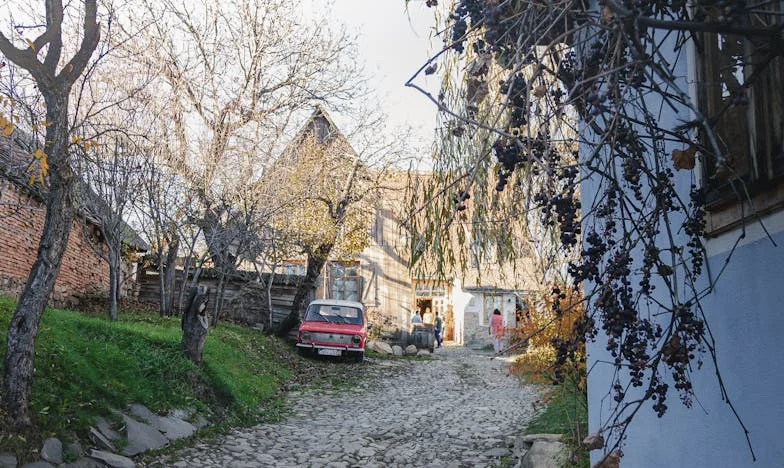A Birthday to Remember: The Price of a Mother’s Dream
“You really spent all that money on a party, Mom? While we’re struggling to get by?”
David’s voice was sharp, hurt. I could see Emily’s face tighten beside him, arms folded, eyes brimming with disappointment. The remnants of my birthday cake sat untouched on the kitchen counter, the last guests gone, laughter and music fading into an awkward silence that clung to every corner of my home.
I stared at the empty plates, my heart pounding. I had rehearsed this moment in my head—how I’d explain, how they’d understand. But now, words tangled in my throat. Seventy years old and still, somehow, I felt like a little girl caught with her hand in the cookie jar.
“I just wanted one night,” I managed. “Just once, to celebrate… me. I never had a party growing up. Not one. And after your father died, every penny went to you, David. To your school, your braces, your first car.”
David’s jaw clenched. “We’re not saying you don’t deserve it, Mom. But you knew we needed help. Emily’s car barely starts. We’re saving every dime for a replacement. You could have—”
Emily cut in, her voice softer but no less strained. “We just wish you’d talked to us. It feels like you chose a party over your family.”
Their words landed like blows. I looked down at my wrinkled hands, fingers trembling. Was I wrong? For seventy years, I’d bent over backwards for others, swallowing my own dreams. I remembered the little girl I once was, peering enviously through the window at friends’ birthday parties I never had. I made a vow then: when I was old enough, I’d throw myself a real celebration. Yet, here I was, surrounded by resentment instead of joy.
The next morning, the house felt impossibly quiet. I wandered through the living room, picking up stray party hats and half-empty glasses. My sister Linda called, voice chipper as always. “So, was it everything you hoped for?”
I hesitated, then let the truth spill. “I think I hurt David and Emily. They needed money for a new car. I spent our savings on the party.”
Linda sighed. “You’ve given them everything, Beth. You deserved this. Don’t let them guilt you.”
But guilt was a heavy coat I couldn’t shrug off. Memories flickered: the time I worked double shifts so David could go to summer camp; Emily’s baby shower, when I spent my Christmas bonus on a crib. All the little sacrifices, invisible and unspoken.
That afternoon, I baked brownies—David’s favorite—and drove to their apartment. The rusty Honda sat out front, the car they’d hoped to replace. I knocked. Emily opened the door, surprise flashing in her eyes.
“Can I come in?” I asked.
She nodded, stepping aside. David sat on the couch, scrolling through his phone, barely glancing up.
“I’m sorry,” I began, voice shaking. “I know you’re disappointed. I just… I needed this. I needed to feel seen, for once. But I never wanted to hurt you.”
David set his phone down. “It’s not just about the car, Mom. It’s… it’s hard right now. Money, work, the baby coming. When we saw you spend so much on yourself, it just—”
Emily reached for his hand. “We love you, Beth. But maybe we all need to talk more. About what we need. About what you need, too.”
I nodded, tears pricking my eyes. For a moment, the tension softened. I left the brownies on their table, promising to call soon.
Days passed. Phone calls were brief, texts even briefer. I threw myself into gardening, trying to let go of regret, but every time I saw a family laughing at the park, a pang shot through my chest. Was this the cost of claiming a piece of happiness for myself?
A week later, David showed up at my door, rain-soaked, eyes tired. “Can we talk?”
I ushered him in. He sat at the kitchen table—the same one where he’d done his homework, built Lego castles, eaten bowls of cereal with his dad. For a moment, I saw not the angry adult, but my little boy again.
“Mom… I’m sorry. I was hard on you. It’s just, I’m scared. Being a dad… it’s overwhelming. And I guess I wanted to believe that you’d always be there to help us, like you always have.”
Tears slipped down my cheek. “I will, David. But I need you to understand—I’m still a person. I have dreams, even now. Is that so wrong?”
He shook his head. “No. I just… I never thought about it. About what you might want.”
We sat in silence, rain tapping the window. Finally, he smiled, a little sheepish. “Happy birthday, Mom. I hope you danced.”
I laughed, wiping my eyes. “I did. For the first time in years, I did.”
The rift didn’t heal overnight, but something shifted. We talked—really talked—about boundaries, about needs, about giving and taking. I helped them budget for a used car, and they invited me to Emily’s baby shower, insisting I bring my famous brownies.
Still, some nights I lie awake, replaying that moment—David’s hurt, Emily’s disappointment, my own trembling resolve. Did I do the right thing? Is it selfish for a mother to put herself first, even once?
At seventy, I danced in my living room, surrounded by friends, laughter, and music. But the echo of my family’s silence lingered. I wonder, even now: Is a mother’s happiness ever truly her own—or is the price always paid by someone else? What would you have done in my shoes?
